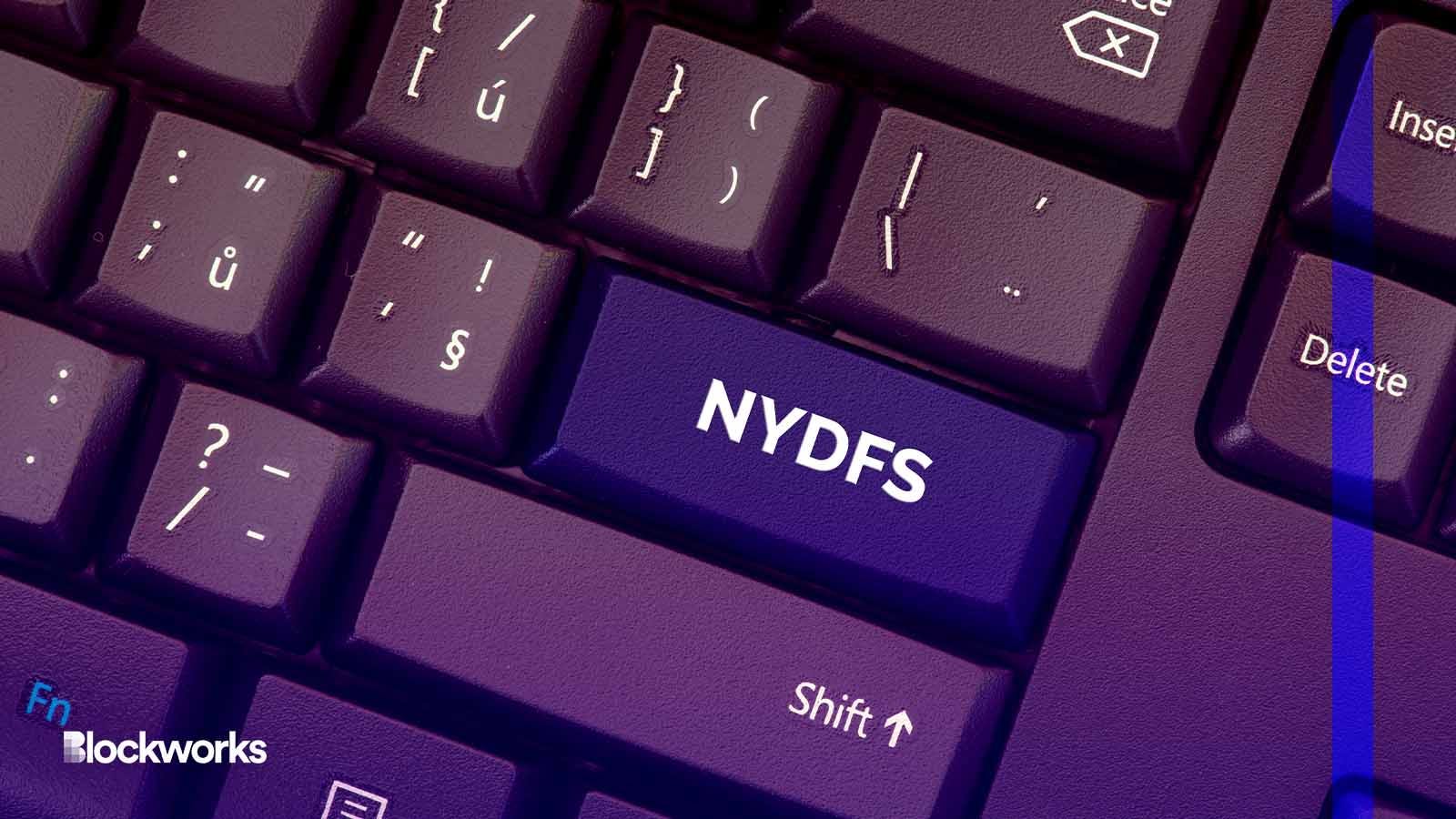NYDFS seeks public feedback on new crypto listing guidelines
The New York Department of Financial Services provided the update Monday

Pe3k/Shutterstock modified by Blockworks
The New York State Department of Financial Services updated its cryptocurrency listing guidance on Monday.
The regulator is seeking public feedback on its updated guidance, which includes tightened risk assessment standards and additional requirements to its coin-delisting policies.
“This coin-delisting policy must include robust procedures that comprehensively address all steps involved in removing support for a coin” and requires the company to tailor the policy to its “specific business model, operations, customers and counterparties, geographies of operations, and service providers; and to the use, purpose, and specific features of coins being considered.”
The requirement is tied to the NYDFS note that it, at “any time and in its sole discretion, requires VC Entities to delist or otherwise limit New Yorkers’ access to coins that are not included on the Greenlist.”
The greenlist is a DFS-controlled list of cryptocurrencies that can be listed by companies without prior DFS approval. As part of the update, however, crypto companies need to seek approval from the DFS on their delisting policies prior to listing any coins on the greenlist.
The list includes bitcoin (BTC), ether (ETH), gemini dollars (GUSD) and the PayPal dollar.
Read more: PayPal launches stablecoin tied to the US dollar, issued on Ethereum
The NYDFS said it will consider coins that have “a demonstrated, historic record consistent with safety and soundness and the protection of customers, including broad marketplace adoption.” It will also include stablecoins approved by the Department by the Department “for issuance in New York” by a crypto company.
Additionally, NYDFS is heightening its risk-assessment standards, which require crypto companies to perform due diligence on coins based on governance, usage, and issuance.
The DFS first issued regulatory on cryptocurrencies in 2015, and created the state-based licensure program popularly known as the BitLicense. The agency published guidance on the listing and adoption of cryptocurrencies in 2020.
Get the news in your inbox. Explore Blockworks newsletters:
- The Breakdown: Decoding crypto and the markets. Daily.
- 0xResearch: Alpha in your inbox. Think like an analyst.






